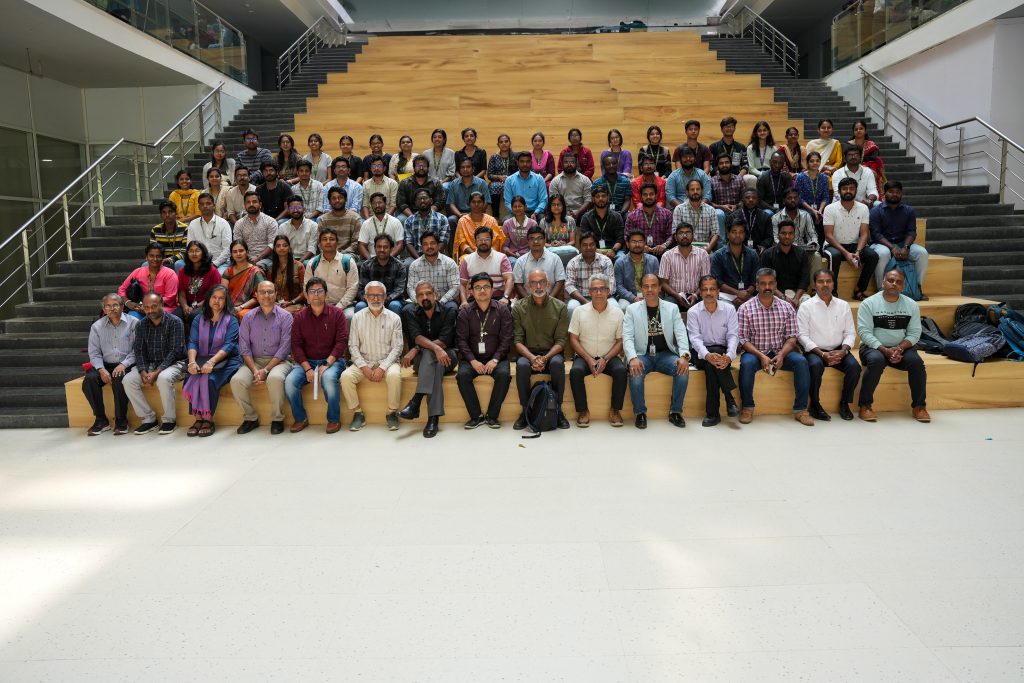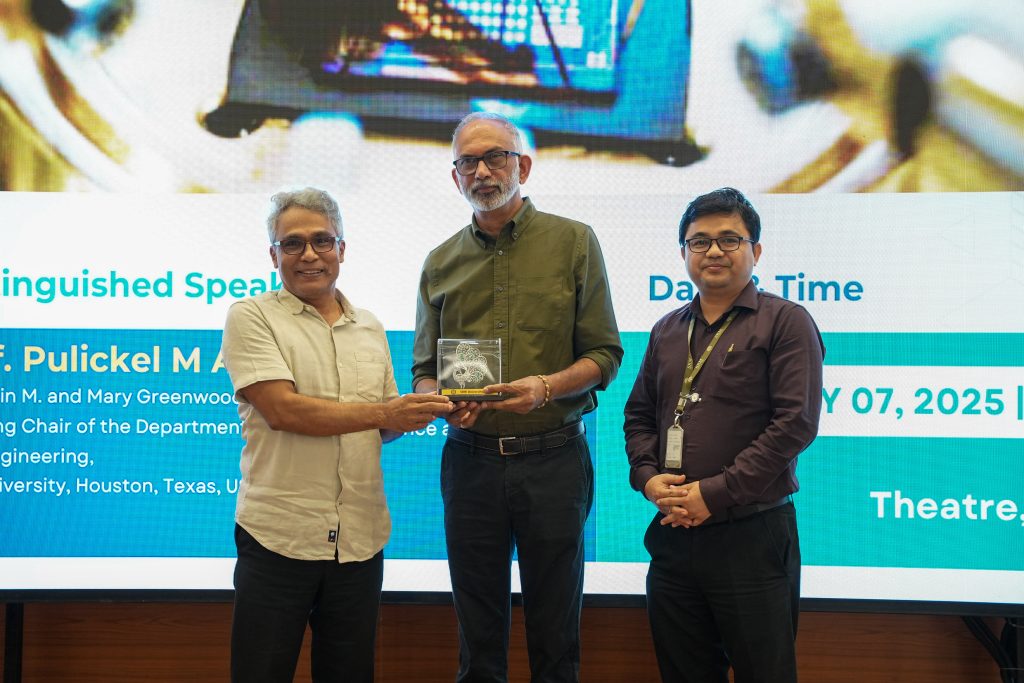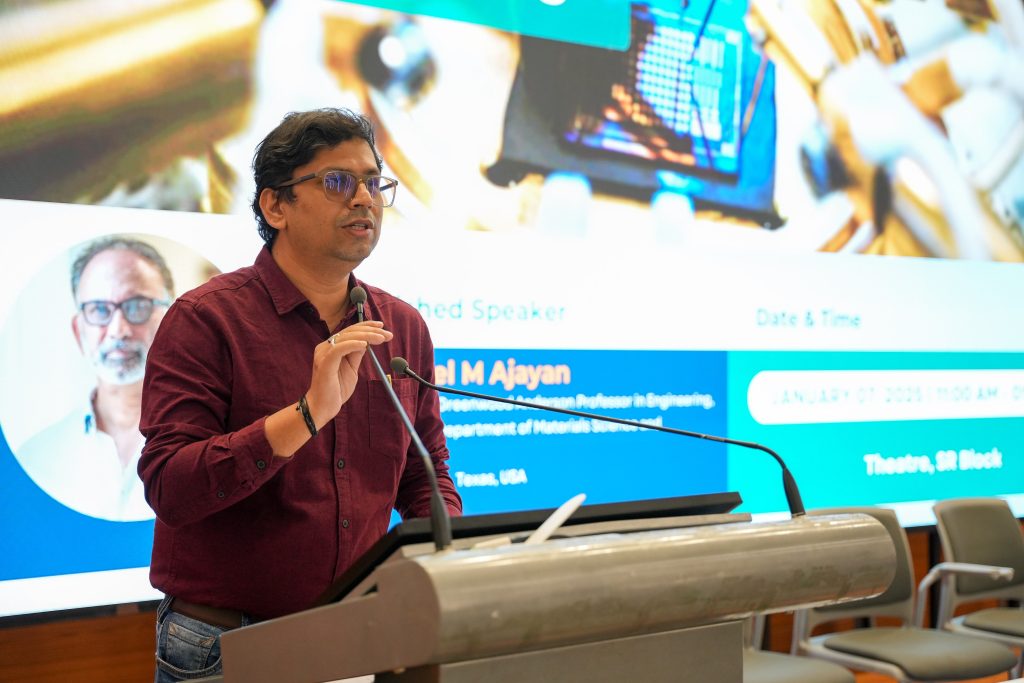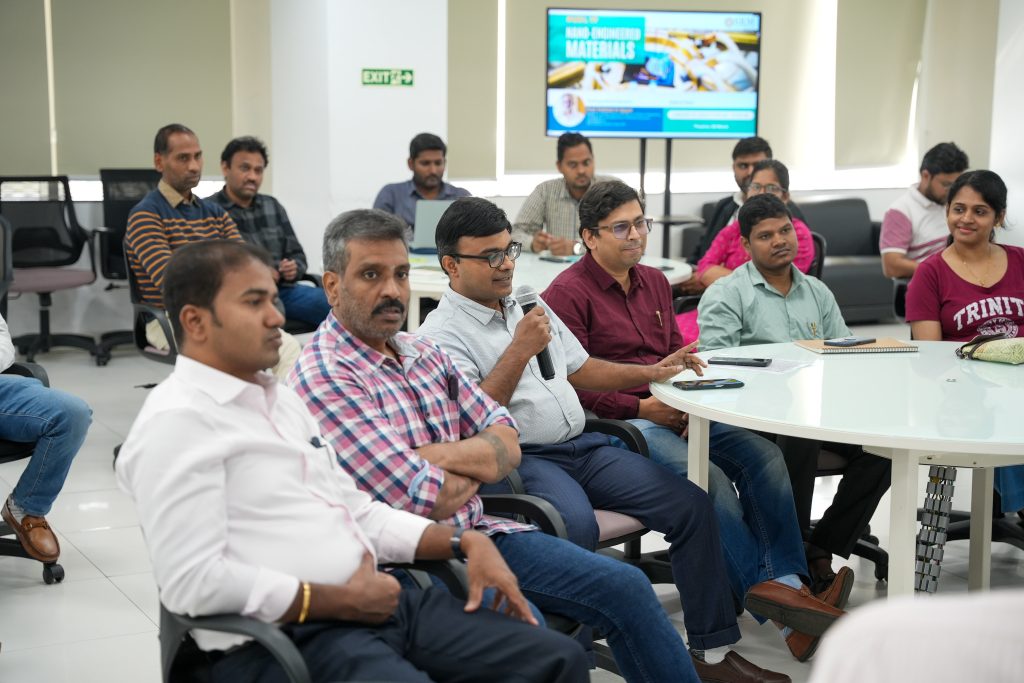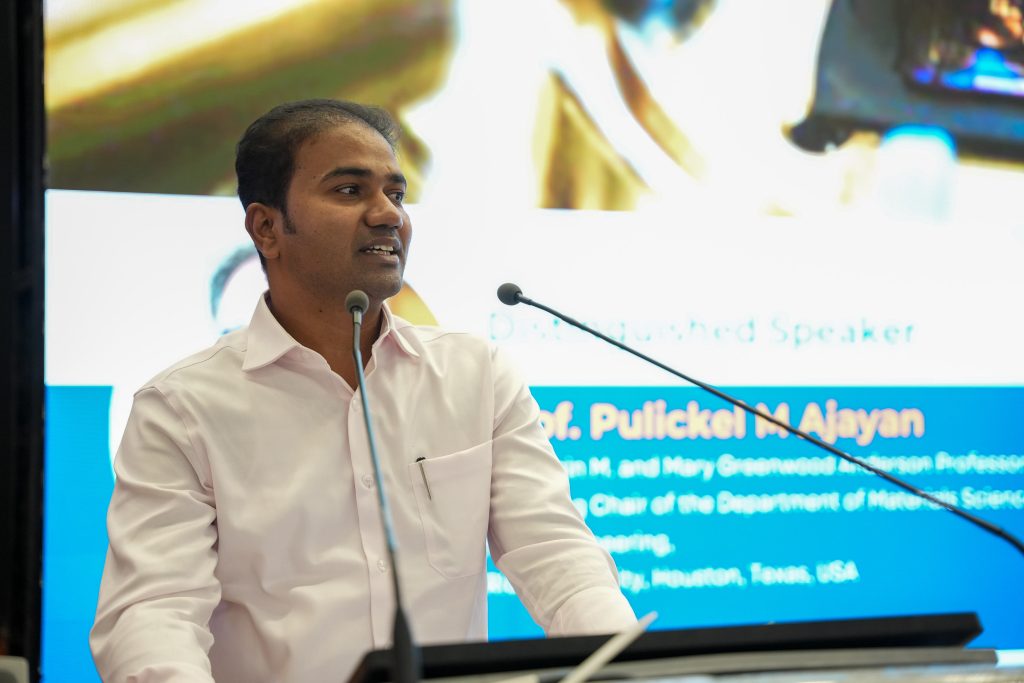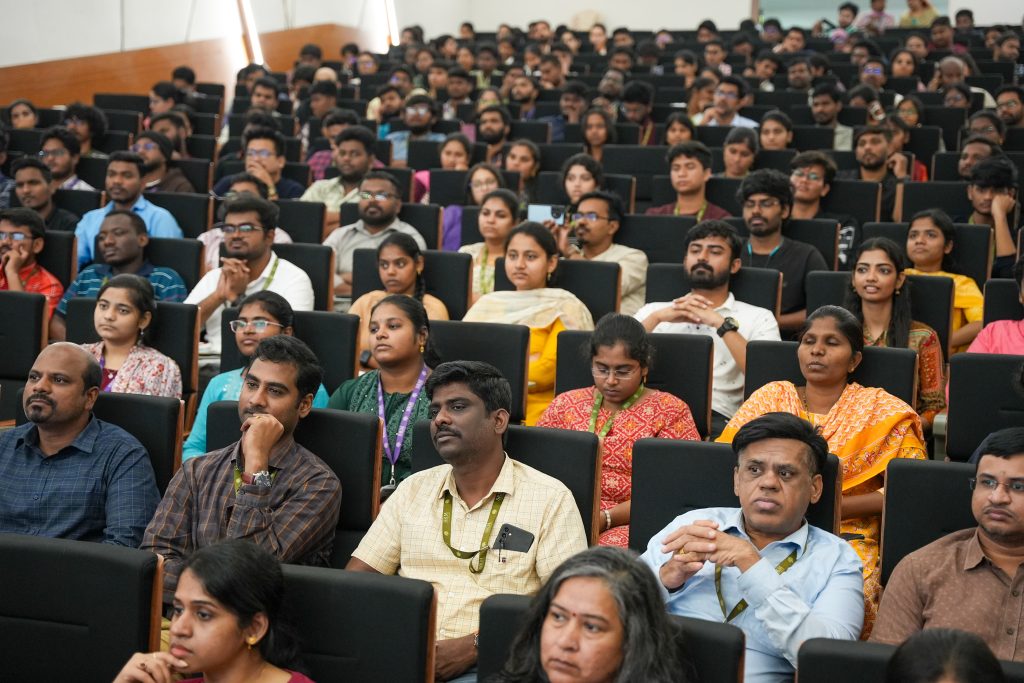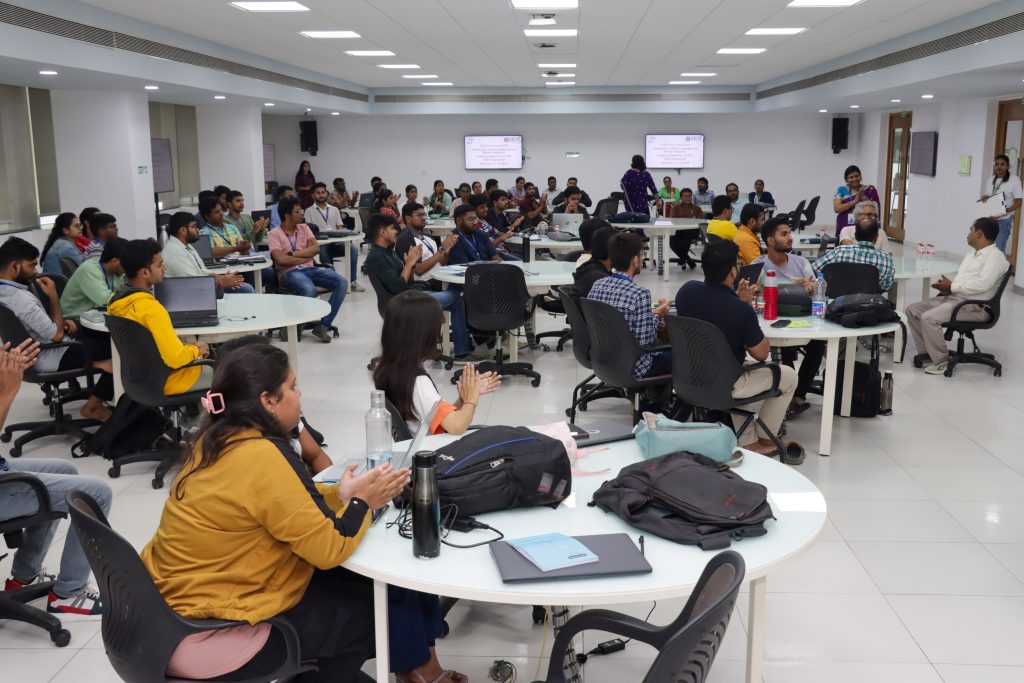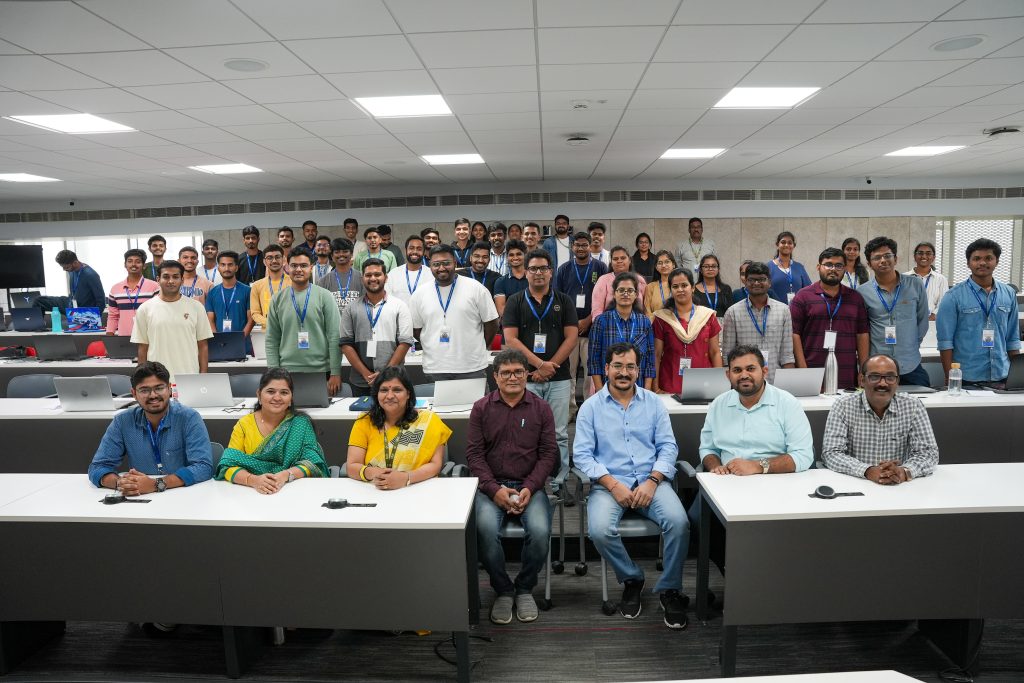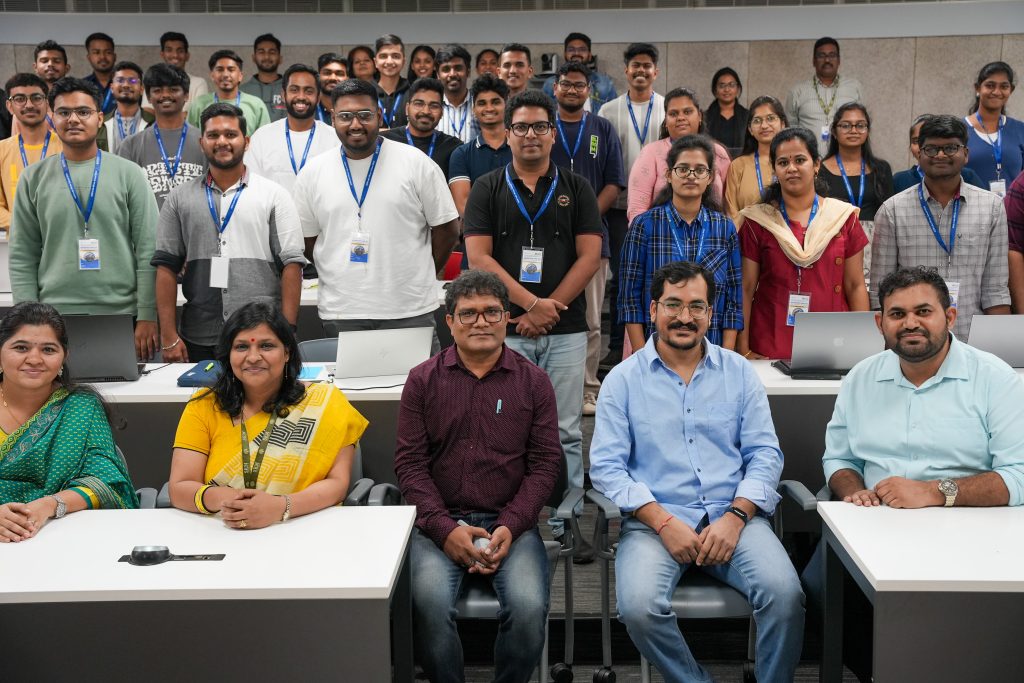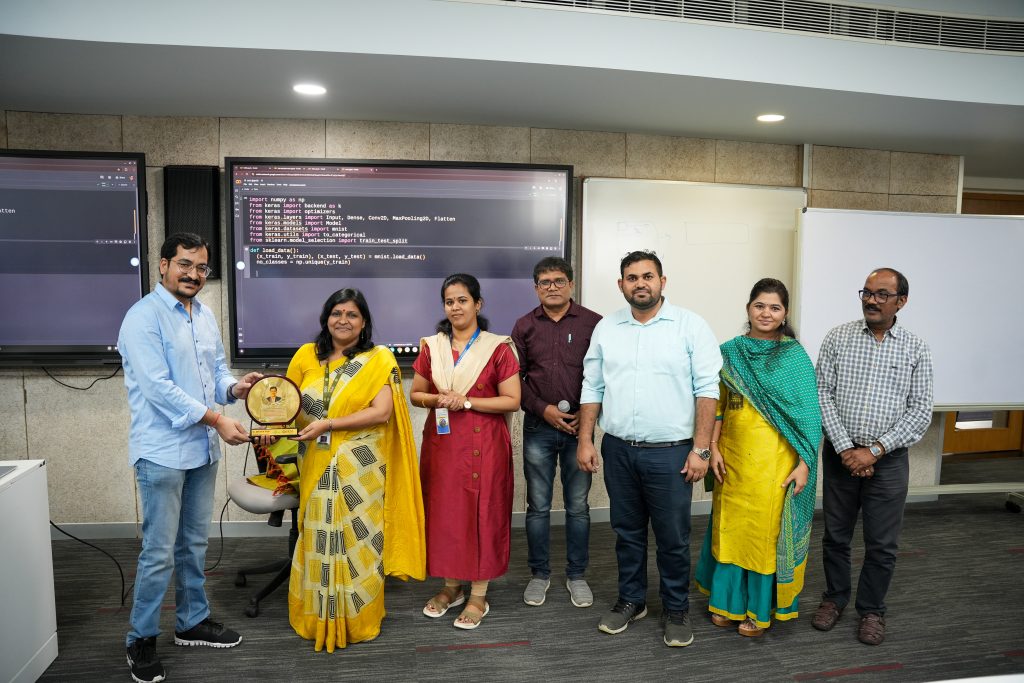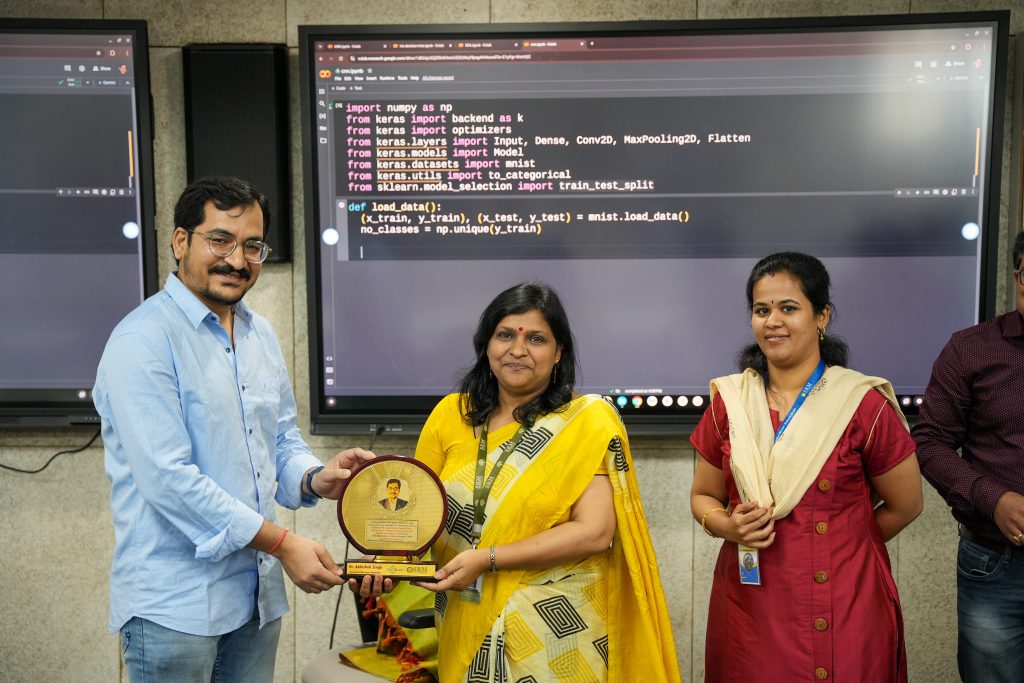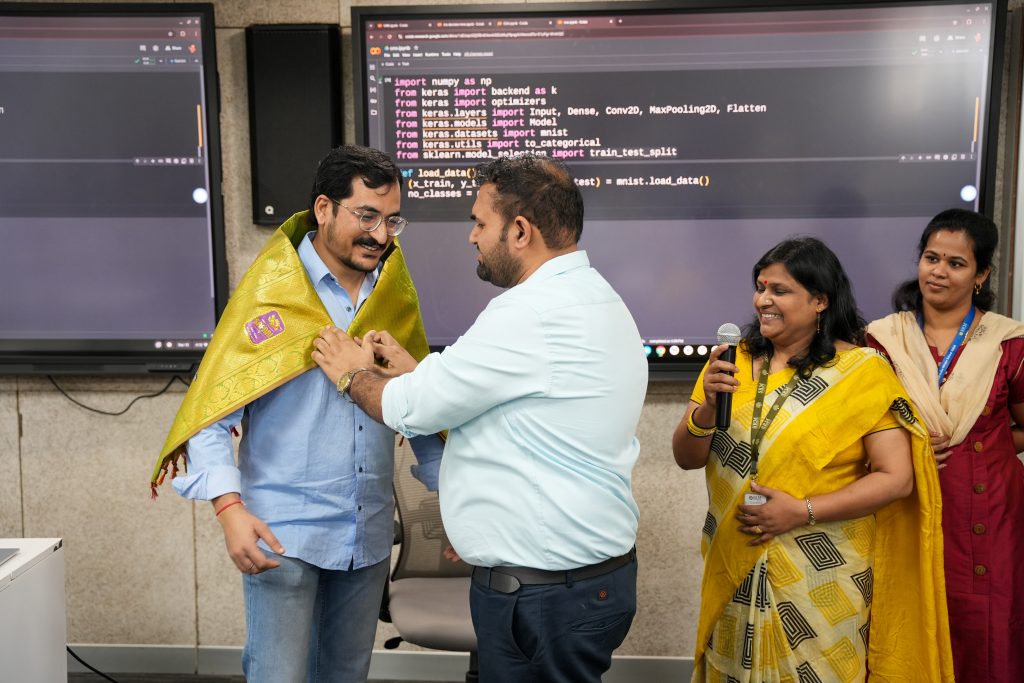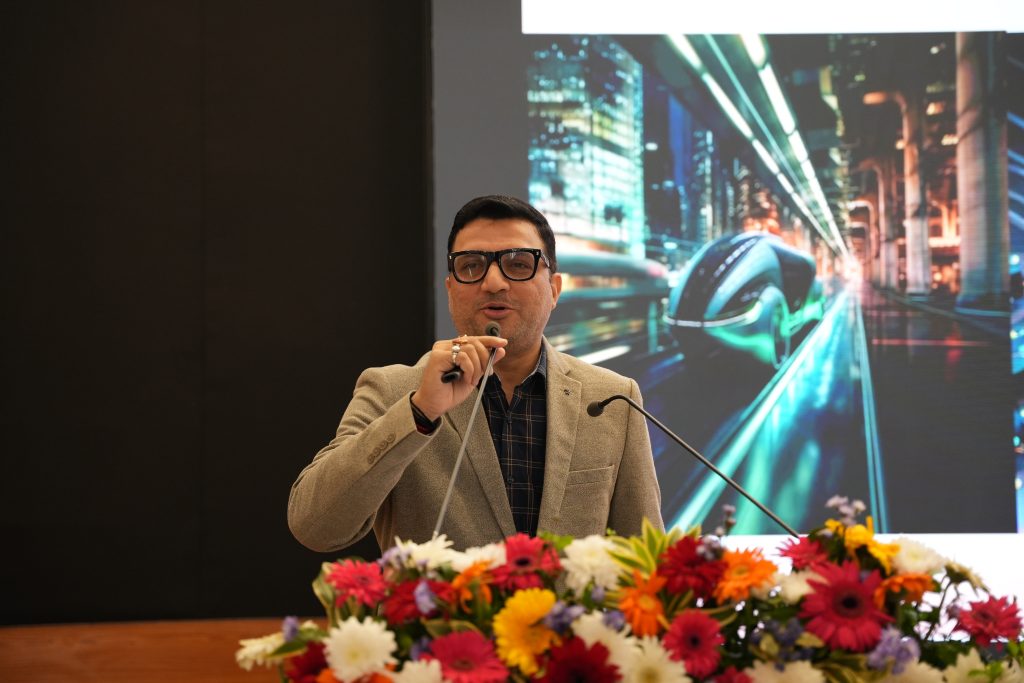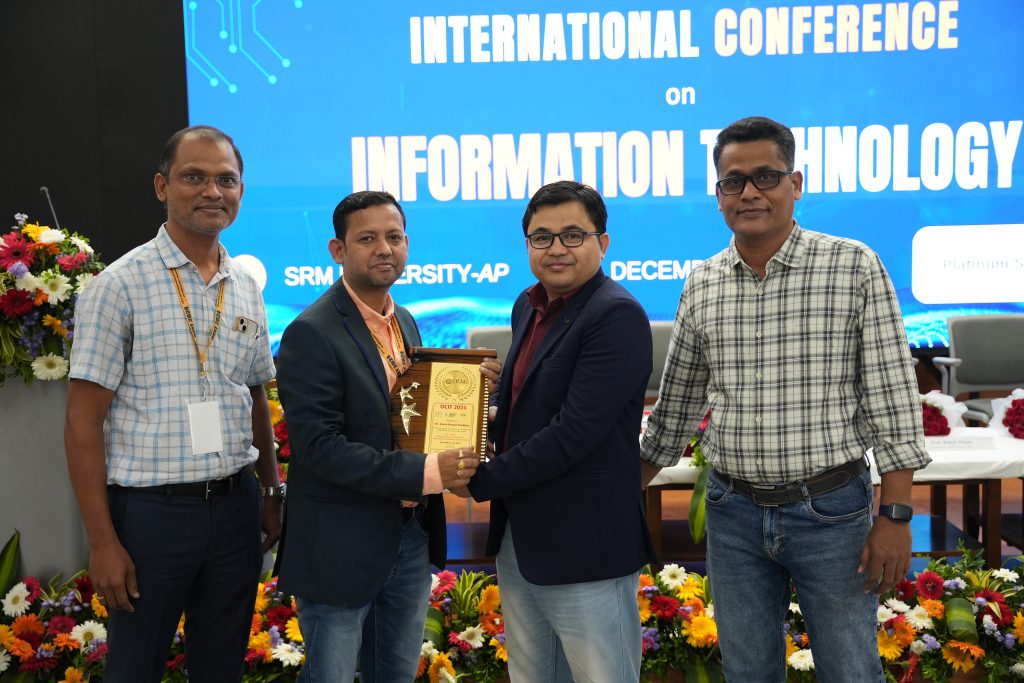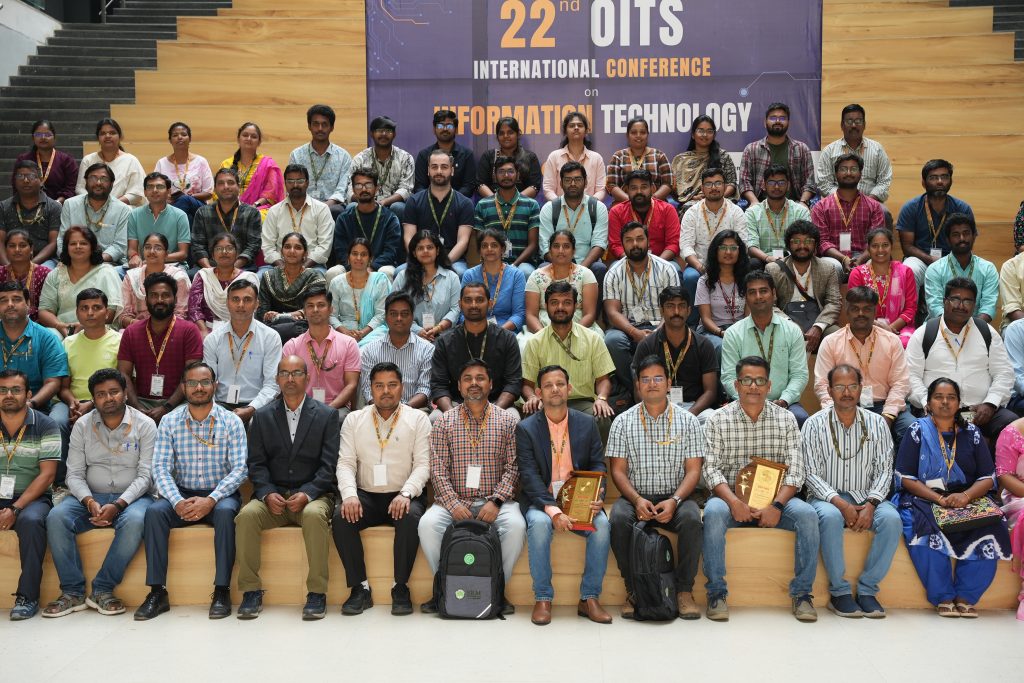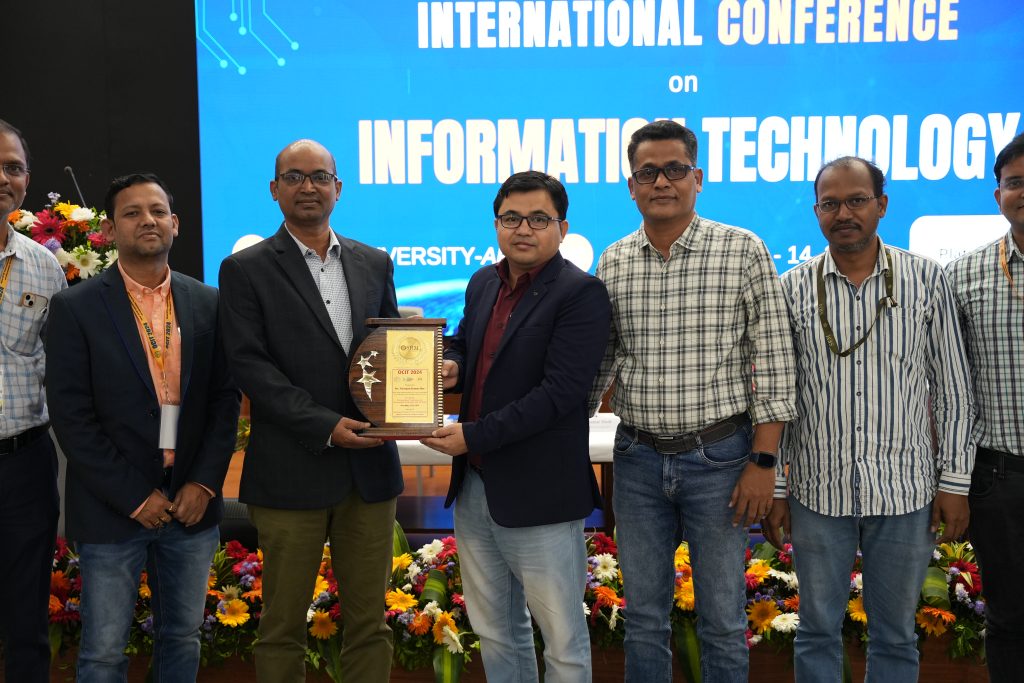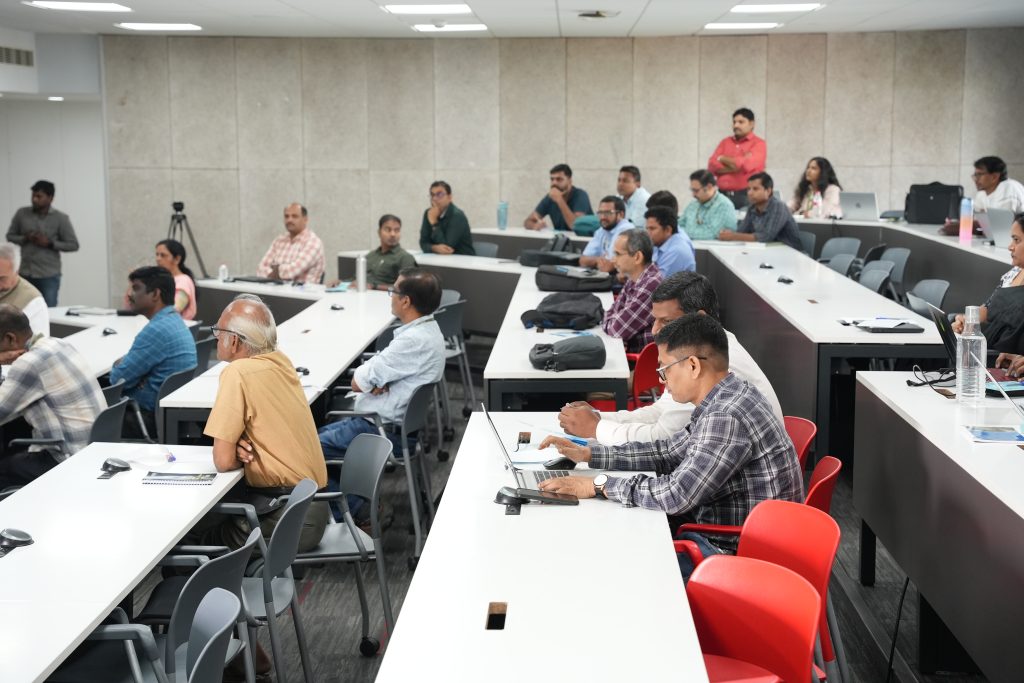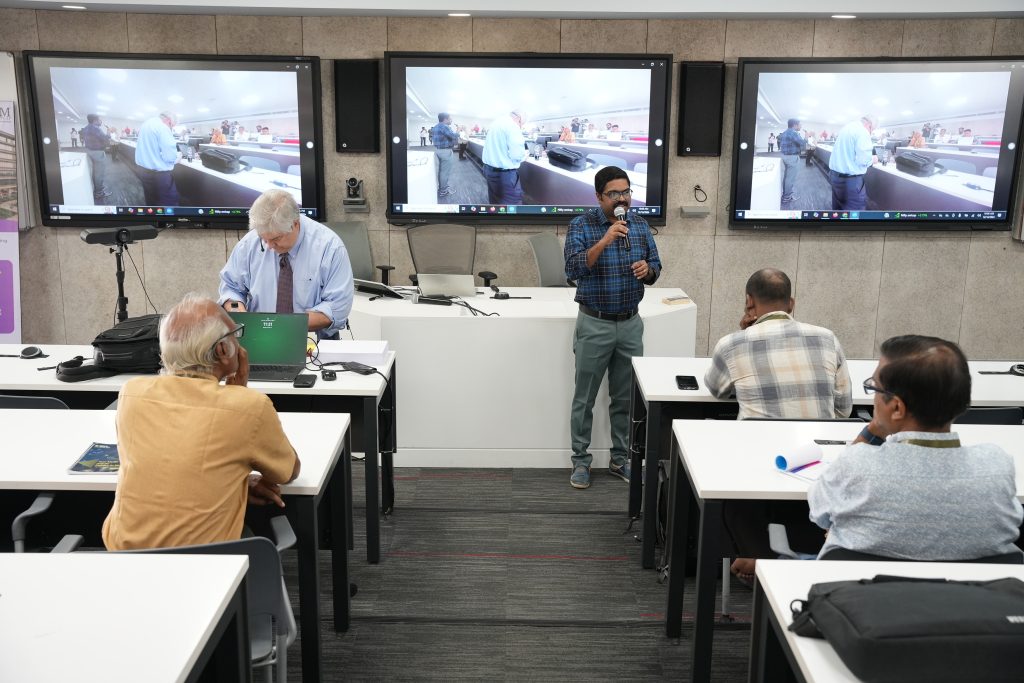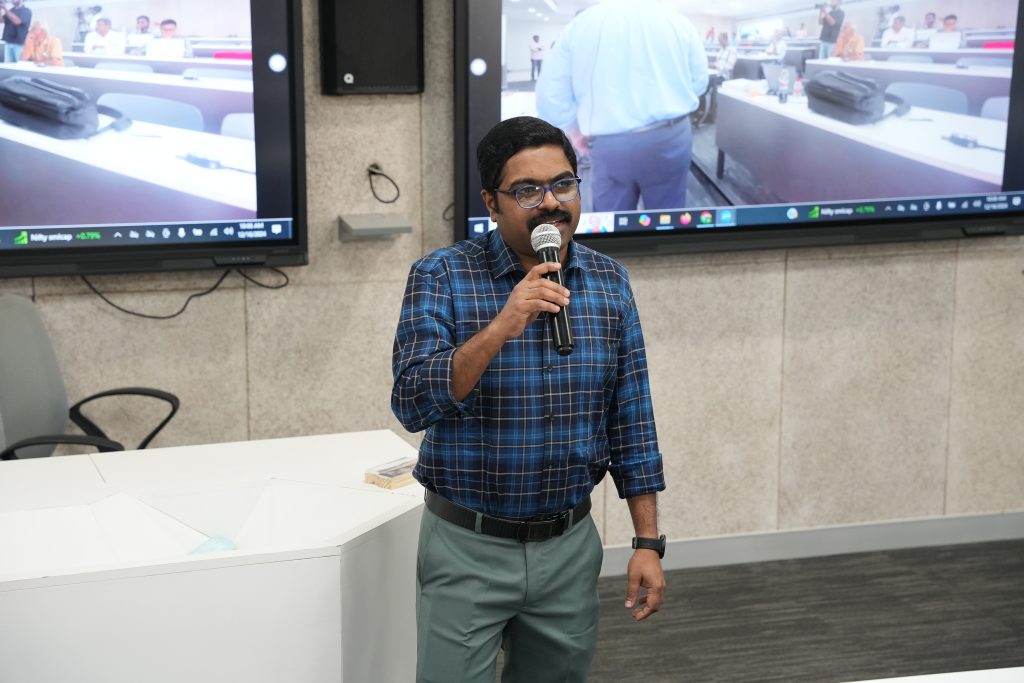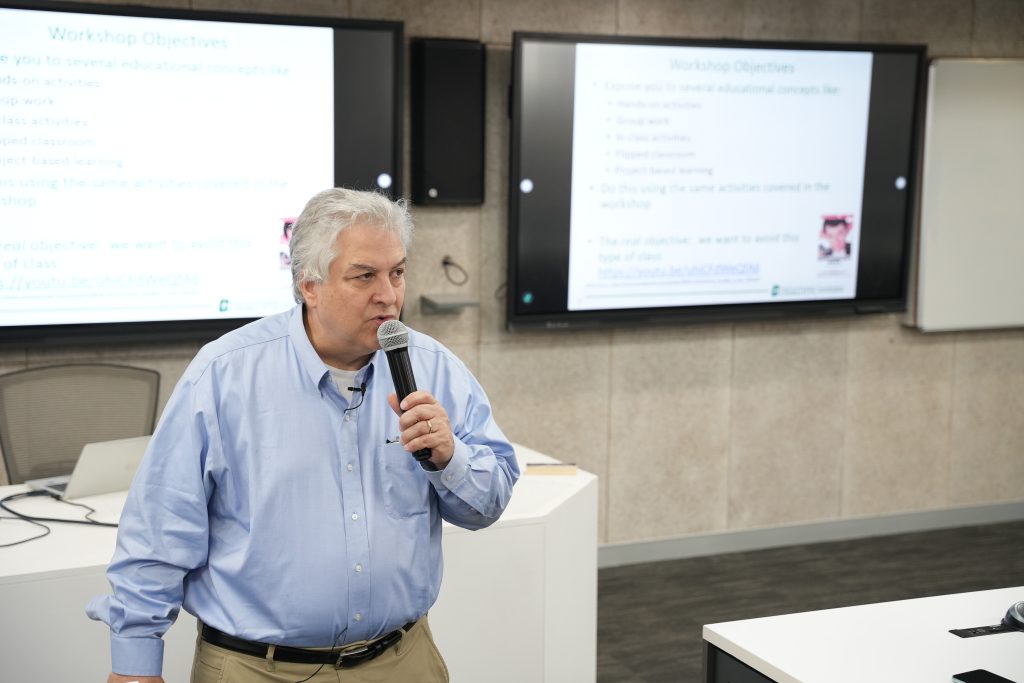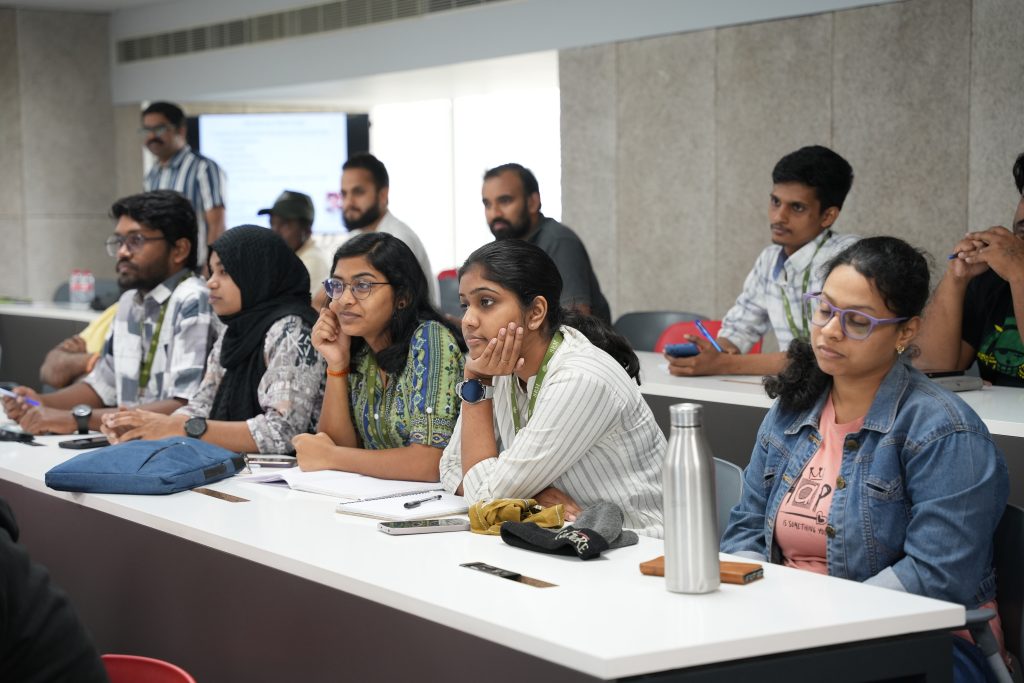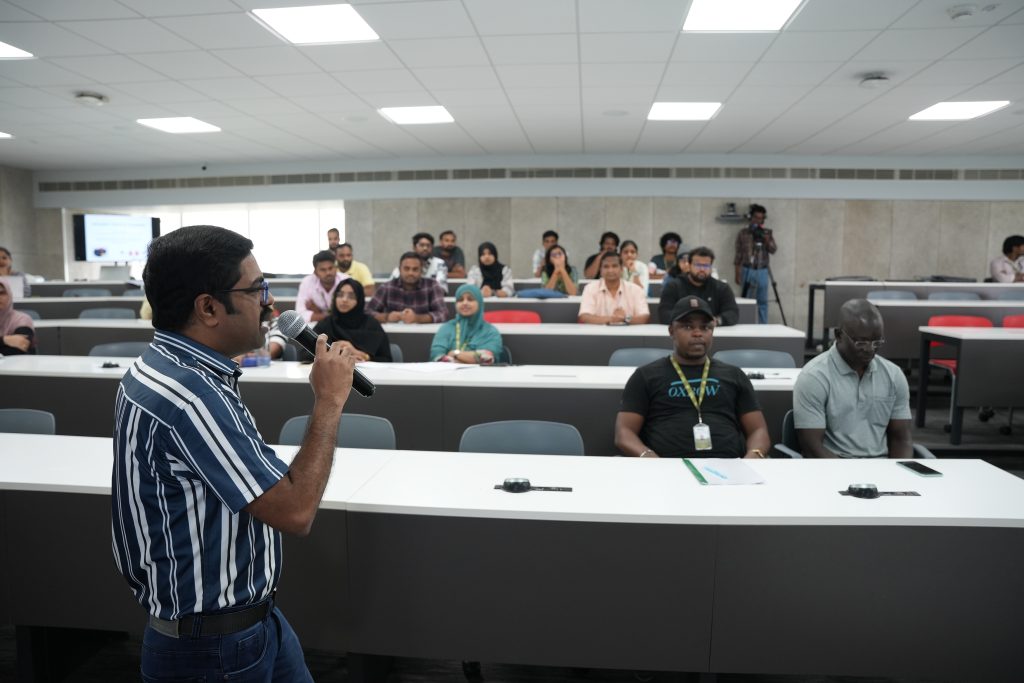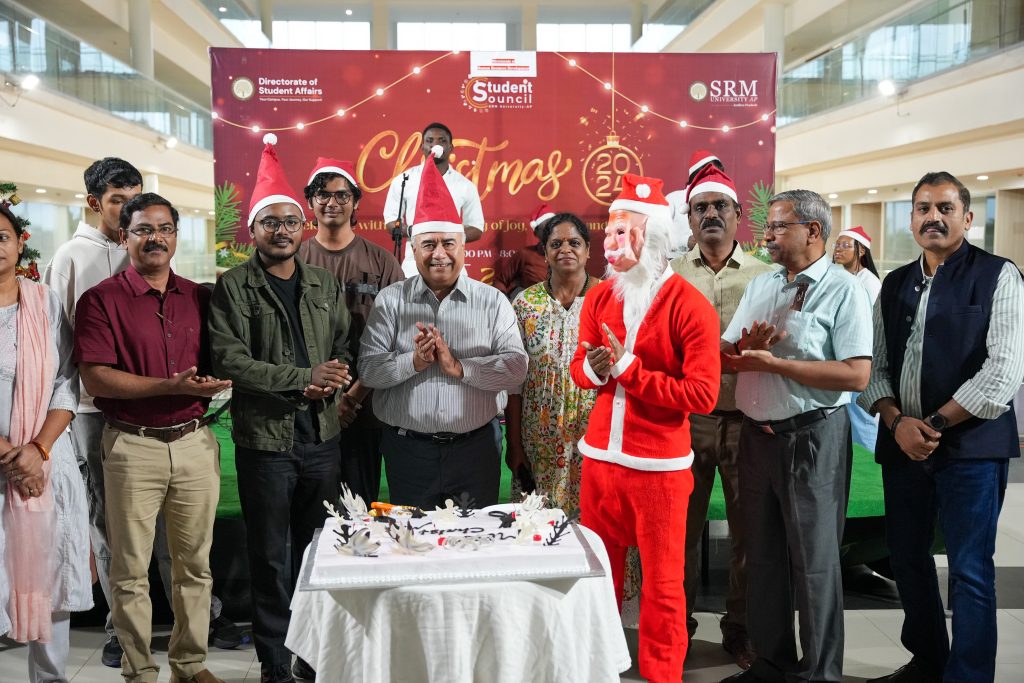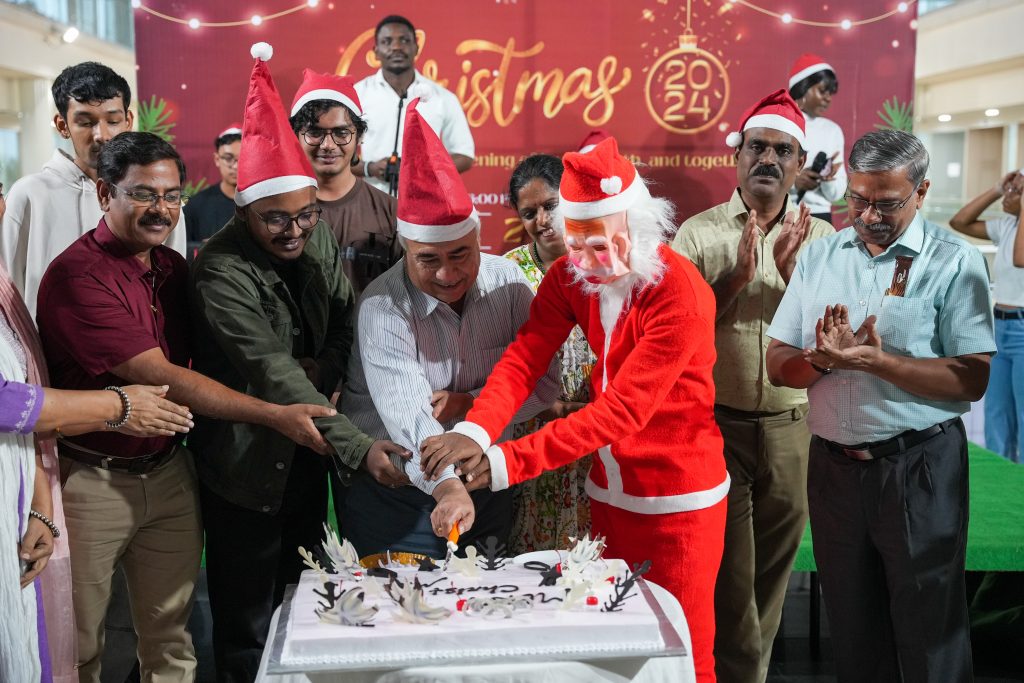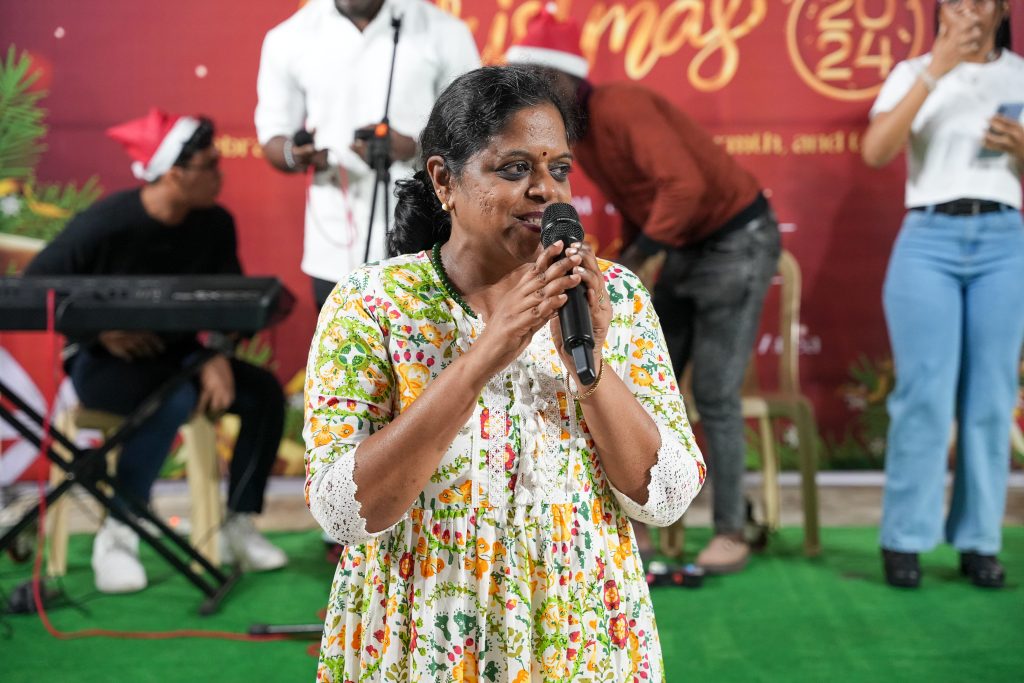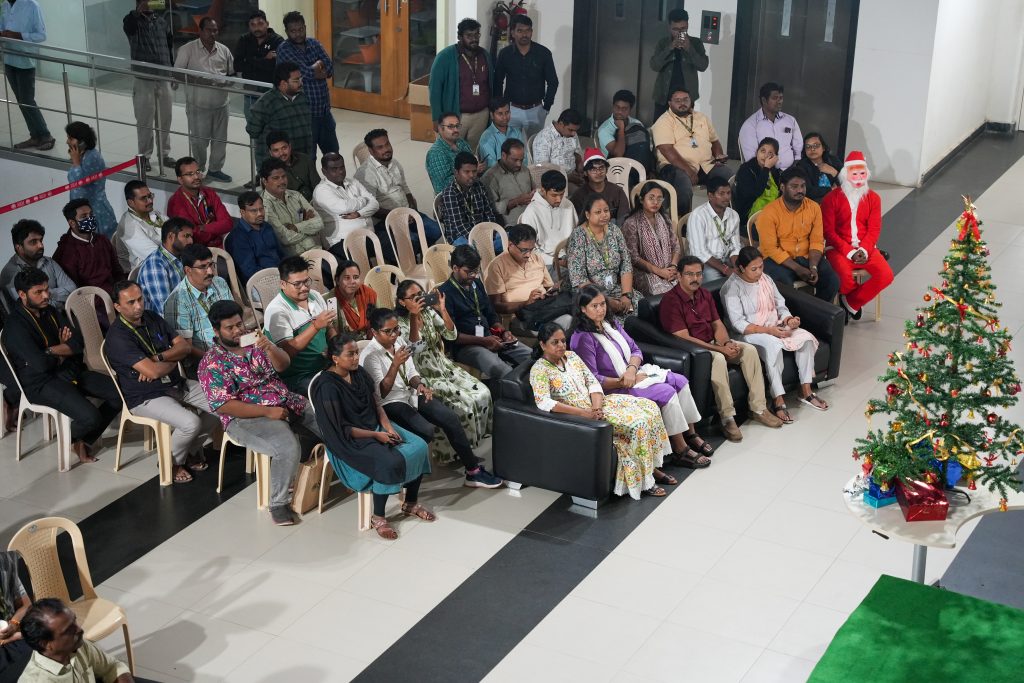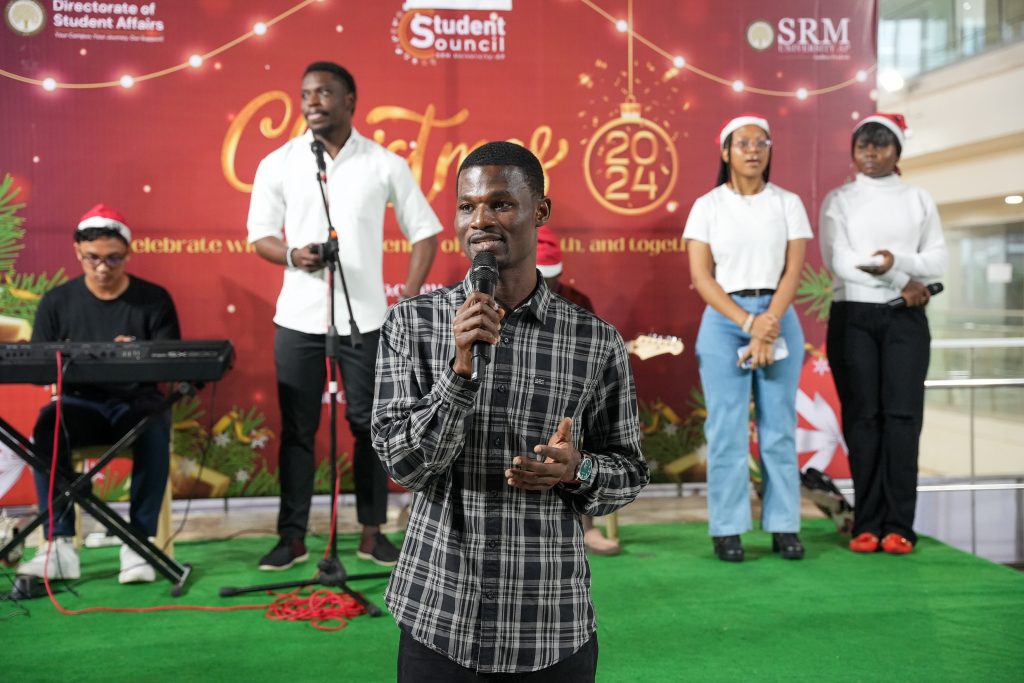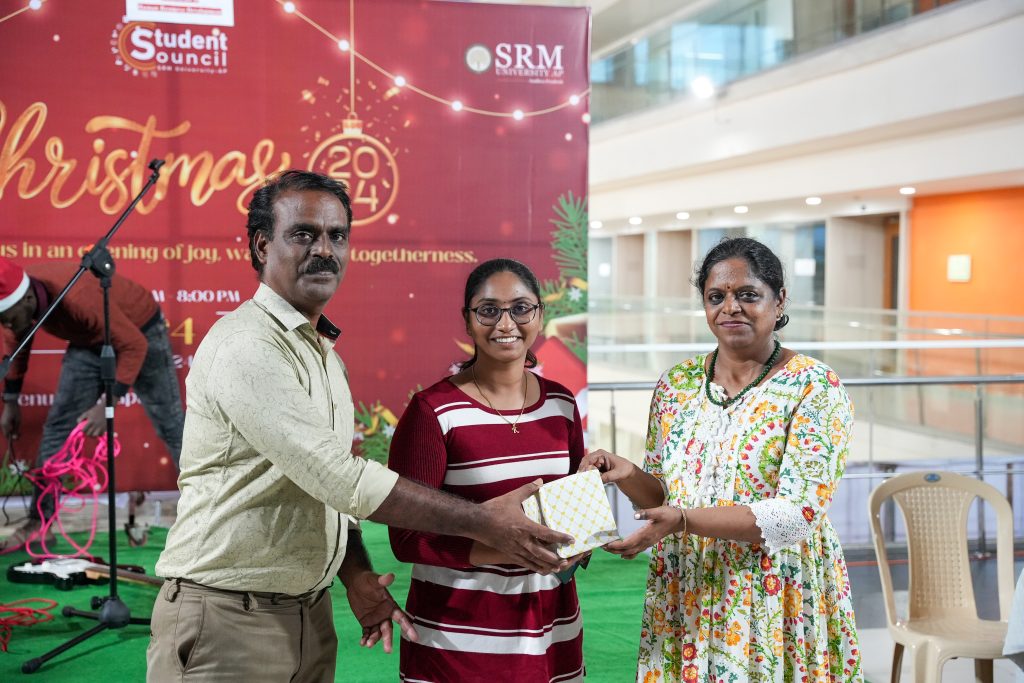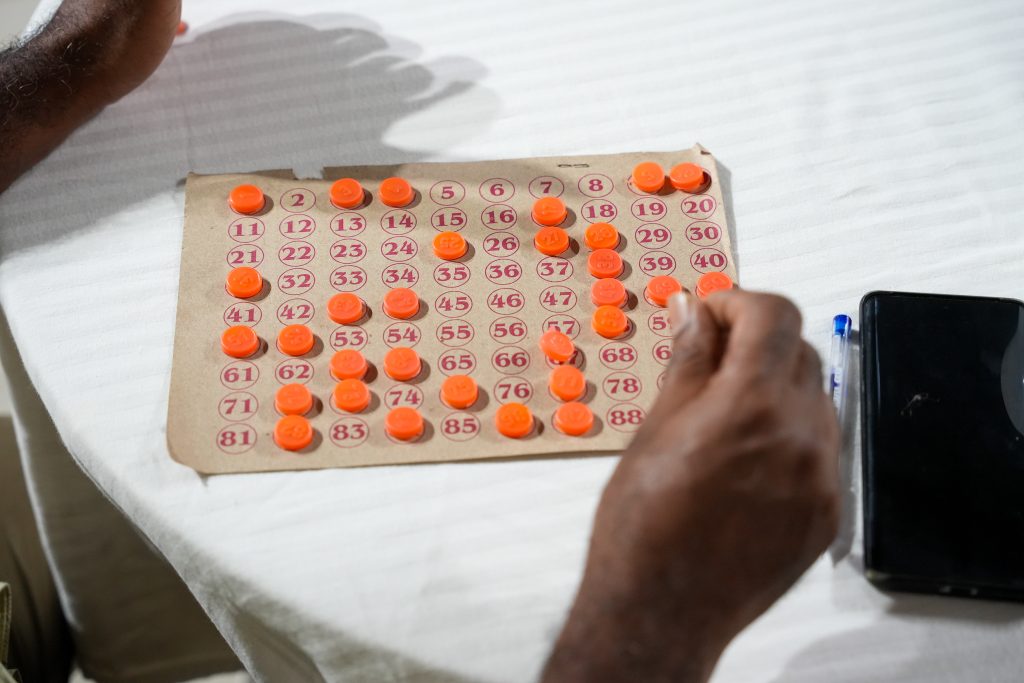SRM-AP All News
ALL News
- Renowned Nanoscientist Prof. Pulickel M Ajayan Delivered UDL#19 January 8, 2025
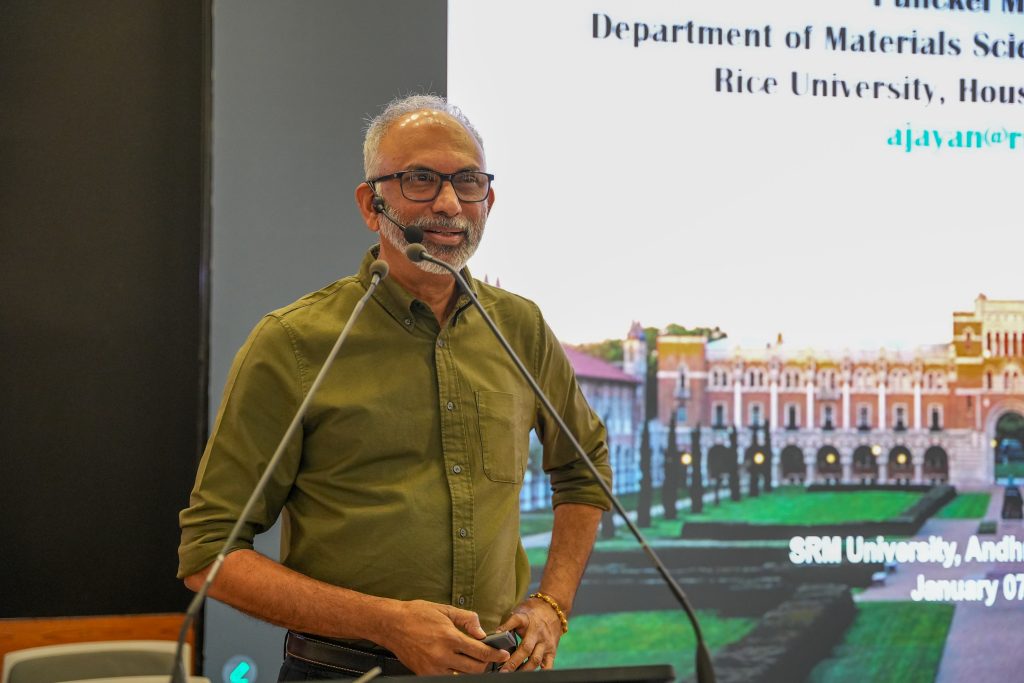
“Engineering very small things, structures less than 10nm, is challenging – and this is my biggest interest.” – Prof. Pulickel M Ajayan.
The university hosted its nineteenth edition of the University Distinguished Lecture, featuring a celebrated talk on “Nano-Engineered Materials” by eminent scientist Prof. Pulickel M Ajayan, Benjamin M. and Mary Greenwood Anderson Professor of Engineering and Founding Chair of the Department of Materials Science and Nanoengineering at Rice University, Texas, USA on January 07, 2025. A pioneer in nanotechnology with a noteworthy career extended to three decades, Prof. Ajayan’s session elucidated the recent developments in nanotechnology, particularly in relation to the challenges in designing and controllably synthesising functional nano-engineered materials.
Prof. Ajayan spoke extensively on the three major key points – Atomically Thin Layers (2D) Vertical and Lateral Heterostructures, Defects & Single Atoms and Printed 3D Nano-architectures & Nanocomposites. “Three decades ago, nanotechnology or nanomaterial science was just emerging. Today, it has become an enabling technology with fundamental developments in controlled manufacturing of nanomaterials,” remarked Prof. Ajayan in his lecture. He proceeded to elucidate the various phases of nanotechnology – the first phase, where scientists worked on the fundamental understanding of material synthesis, controlled fabrication, etc.; the second phase of integrating nanotechnology into potential devices; and the current phase of high-tier development through commercialisation.
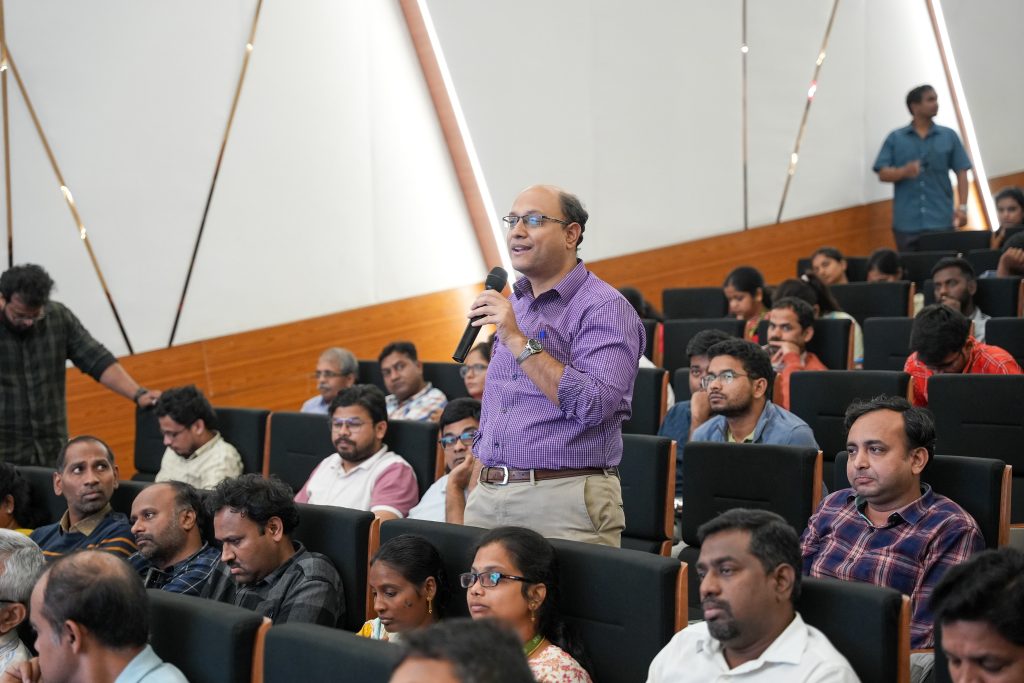
“A prominent figure in nanotechnology, Prof. Ajayan’s work in carbon nanotubes is exemplary in understanding the building of nano heterostructures. It is a privilege to have him share his wealth of knowledge on this remarkable occasion,” said Prof. CV Tomy, Dean – SEAS, in his welcome address. Prof. Ranjit Thapa, Dean – Research, also praised Prof. Ajayan for his contributions to nanoengineering and material science. Prof. Ajayan also had a brief interaction with the faculty regarding potential academic and research collaborations.
The 19th University’s distinguished lecture on nano-engineered materials ignited genuine curiosity about the field among the participating students. The profile of Prof. Pulickel M Ajayan and his astounding research portfolio motivated both faculty and students to explore nanoengineering and material sciences. The 19th UDL was graced by the presence of Registrar Dr R Premkumar, Deans of various schools, faculty from various streams and students of the varsity. The UDL series is a testament to the university’s passion for research and commitment to place SRM AP in the frontiers of academic and research excellence.
Continue reading → - 2D Metallene Designs to Advance Multifunctional Electrocatalysis January 6, 2025
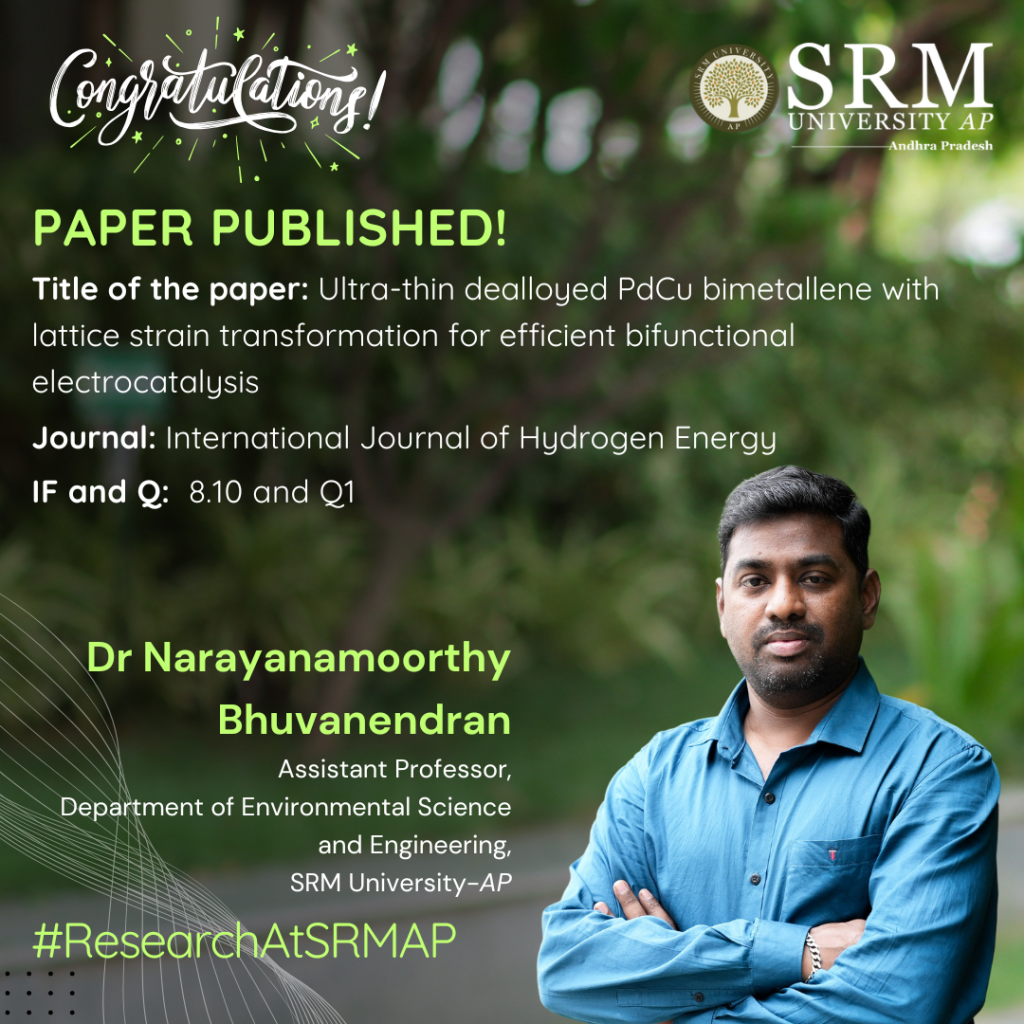
Dr Narayanamoorthy Bhuvanendran, Assistant Professor in the Department of Environmental Science and Engineering, has published his research work as an article titled “Ultra-thin Dealloyed PdCu Bimetallene with Lattice Strain Transformation for Efficient Bifunctional Electrocatalysis” in the esteemed International Journal of Hydrogen Energy, which has an impact factor of 8.10. His work underscores the development of 2D PdCu bimetallene with improved structural and electronic properties displaying super-catalytic behaviour.
Abstract
Two-dimensional (2D) PdCu bimetallene (PdCu) demonstrates exceptional structural and electronic properties, making it highly effective for electrochemical reactions in energy applications. Electrochemical dealloying (DA) of PdCu enhances surface reactivity by modulating electronic structure and inducing strain, optimising its performance for oxygen reduction (ORR) and methanol oxidation (MOR) in alkaline media. DA PdCu features a heterogeneous surface with abundant defects, improving active site availability and reaction kinetics. It achieves superior ORR mass activity (0.62 mA µg⁻¹) with a 10 mV positive half-wave potential shift after 20,000 cycles and MOR mass activity (3335.9 mA mg⁻¹) with 62.3% retention after 10,000 cycles. Theoretical studies reveal the impact of strain-induced electronic modulation on intermediate adsorption energies, corroborating experimental findings. This alloying-dealloying strategy in 2D PdCu bimetallene offers a robust approach to advancing multifunctional electrocatalysis with enhanced durability and performance.
Explanation of the Research in Layperson’s Terms
This research highlights the development of a two-dimensional PdCu bimetallene catalyst with tailored structural and electronic features, offering transformative advancements for electrochemical energy conversion and storage systems. The unique properties of 2D metallene layers, including their high surface area, tunable electronic structure, and enhanced surface reactivity, play a pivotal role in optimising catalytic performance. By employing a controlled dealloying process, the atomic and electronic structure of PdCu bimetallene is significantly modified, introducing lattice distortions, abundant surface defects, and a heterogeneous crystalline-amorphous interface. These features create more active sites and improve the interaction with reaction intermediates, leading to superior catalytic behaviour. The material demonstrates outstanding efficiency in oxygen reduction (ORR) and methanol oxidation (MOR), critical reactions in fuel cells and other electrochemical energy systems. For ORR, the catalyst achieves high mass activity, long-term stability, and resistance to degradation, maintaining its performance after extensive testing. In MOR, the catalyst exhibits exceptional activity and durability, retaining a significant portion of its efficiency over prolonged cycles. These structural and functional attributes emphasize the importance of 2D metallene designs and the alloying-dealloying strategy in enhancing the structure-activity relationship, establishing a foundation for innovative electrocatalysts in sustainable energy technologies.
Practical Implementation/ Social Implications of the Research
This research offers a practical pathway to revolutionise renewable energy systems by advancing next-generation electrocatalysts for fuel cells, metal-air batteries, and other energy conversion technologies. The optimised two-dimensional PdCu bimetallene, with enhanced ORR and MOR performance, demonstrates significant potential for clean energy applications such as proton-exchange membrane fuel cells and direct methanol fuel cells, addressing critical needs for efficiency and durability. The scalable, environmentally friendly alloying-dealloying synthesis reduces reliance on expensive platinum, lowering production costs while delivering high catalytic performance. By enabling efficient energy storage and conversion, supporting carbon-neutral systems, and inspiring the design of versatile 2D metallenes for diverse applications, this research significantly contributes to sustainable energy transitions and global climate goals.
Collaborations
- Prof. Sae Youn Lee, Department of Energy and Materials Engineering, Dongguk University, Seoul, Republic of Korea.
- Dr Wan-Gil Jung, Korea Basic Science Institute, Gwangju Center, Republic of Korea.
- Prof. Ming-Chang Lin, Department of Applied Chemistry, National Yang-Ming Chiao Tung University, Hsinchu, Taiwan.
- Dr Venkatesan Srinivasadesikan, Department of Chemistry, School of Science and Humanities, Vignan’s Foundation for Science, Technology and Research, Guntur, Andhra Pradesh, India.
Future Research Plan
Future research will focus on designing nanostructured hybrid electrocatalysts with enhanced activity, stability, and selectivity for energy and environmental applications. Emphasis will be placed on tailoring nanoscale architectures and synergistic material interactions to optimize performance in processes such as water splitting, CO2 reduction, NO3 reduction, fuel cells, and pollutant degradation, enabling scalable and sustainable solutions to global challenges.
Continue reading → - ACM Winter School 2024: A Platform for Innovation December 31, 2024
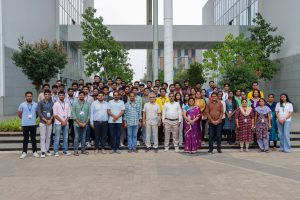 The ACM Winter School 2024, organised by the Department of Computer Science, was aimed to enhance advanced learning in the field of computing. This prestigious programme successfully attracted participants from across India, representing 22 eminent institutions, including notable names like IIT Delhi, IIT Gandhinagar, and IIT Hyderabad.
The ACM Winter School 2024, organised by the Department of Computer Science, was aimed to enhance advanced learning in the field of computing. This prestigious programme successfully attracted participants from across India, representing 22 eminent institutions, including notable names like IIT Delhi, IIT Gandhinagar, and IIT Hyderabad.The inaugural session, was graced by distinguished academic figures such as Prof. Nibaran Das from Jadavpur University and Prof. C V Tomy, the Dean of the School of Engineering and Sciences. The faculty coordinators, Dr Priyanka Singh, Dr Ajay B, Dr Ravi Kant Kumar, and Dr Niladri Sett, played significant roles in facilitating the event.
During the opening remarks, Dr Ajay B, who serves as an Assistant Professor and faculty coordinator, emphasised the importance of creating platforms that inspire innovative thinking and empower students with fresh, out-of-the-box ideas. His perspective resonated with the overarching goals of the Winter School to cultivate cre
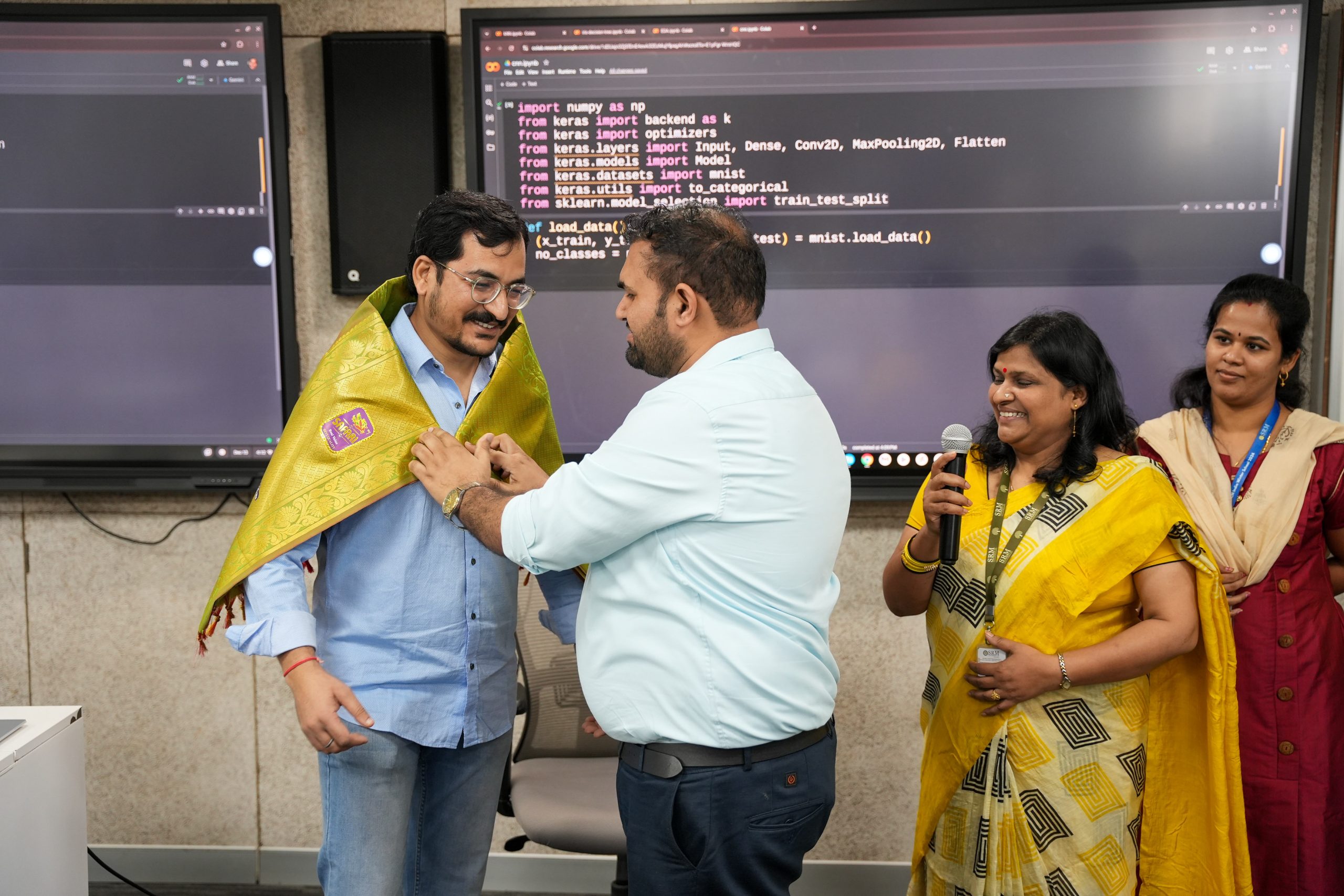 ativity and collaboration among the participants.
ativity and collaboration among the participants.Dr Priyanka Singh provided a comprehensive overview of the programme’s objectives, setting the tone for the enriching experiences that lay ahead. Following her, Prof. C V Tomy addressed the audience, underscoring the significance of such events in offering new insights and facilitating networking opportunities. He praised the organising team for their commitment to making this initiative a reality and highlighted its potential impact on the academic journeys of the participants.
With a dynamic lineup of sessions led by experts from various parts of the country, the ACM Winter School delivered a transformative learning experience. This gathering promotes collaboration and knowledge exchange, aiming to foster a deep understanding of critical computing topics among attendees.
Adding to the programme’s rich content, Dr Abhishek Singh was recognised as the esteemed resource person for the Winter School. His extensive expertise and invaluable insights have significantly enriched the experience, inspiring participants to engage in innovative thought. The gratitude expressed by the faculty coordinators—Dr Priyanka Singh, Dr Ajay B, and Dr Ravi Kant Kumar—reflects the lasting impact his contributions have made on all attendees.
The ACM Winter School 2024 promises to be a milestone event, equipping participants with knowledge and skills that will undoubtedly resonate in their academic and professional pursuits.
Continue reading → - Commemorating National Mathematics Day December 31, 2024
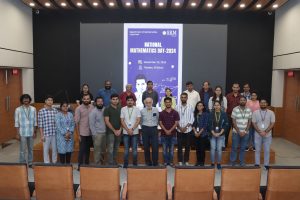 The Department of Mathematics commemorated National Mathematics Day on December 20, 2024, with a remarkable event honouring the birth anniversary of the legendary mathematician Srinivasa Ramanujan. The celebrations encapsulated Ramanujan’s works, achievements, and the significance of mathematics in everyday life through various guest talks, programmes, and a movie screening.
The Department of Mathematics commemorated National Mathematics Day on December 20, 2024, with a remarkable event honouring the birth anniversary of the legendary mathematician Srinivasa Ramanujan. The celebrations encapsulated Ramanujan’s works, achievements, and the significance of mathematics in everyday life through various guest talks, programmes, and a movie screening.Chief guest Prof. Rajat Tandon, Retired Professor from Hyderabad Central University, delivered the keynote session underscoring the significance of the subject and recognising its widespread applications in technology, engineering, economics, healthcare, and beyond. Dr Sazzad Ali Biswas, Assistant Professor from the Department of Mathematics, SRM AP, also elucidated exploring the world of mathematics and the myriad of opportunities that lie within academia, industry, and research.
The National Mathematics Day Celebrations also featured a movie screening of the Oscar-winning film A Beautiful Mind, a biographical drama about the mathematician John Nash, a Nobel Laureate in Economics. The film engaged students in a deep exploration of mathematics and inspired them to achieve excellence in the field.
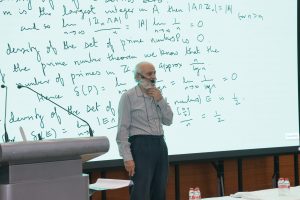
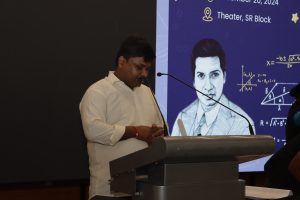
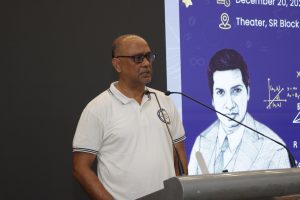
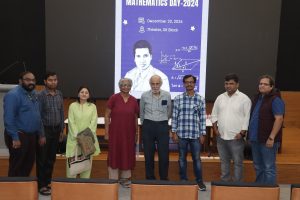
Continue reading → - OCIT-2024: An International Conference Exploring Trends in Information Technology December 31, 2024
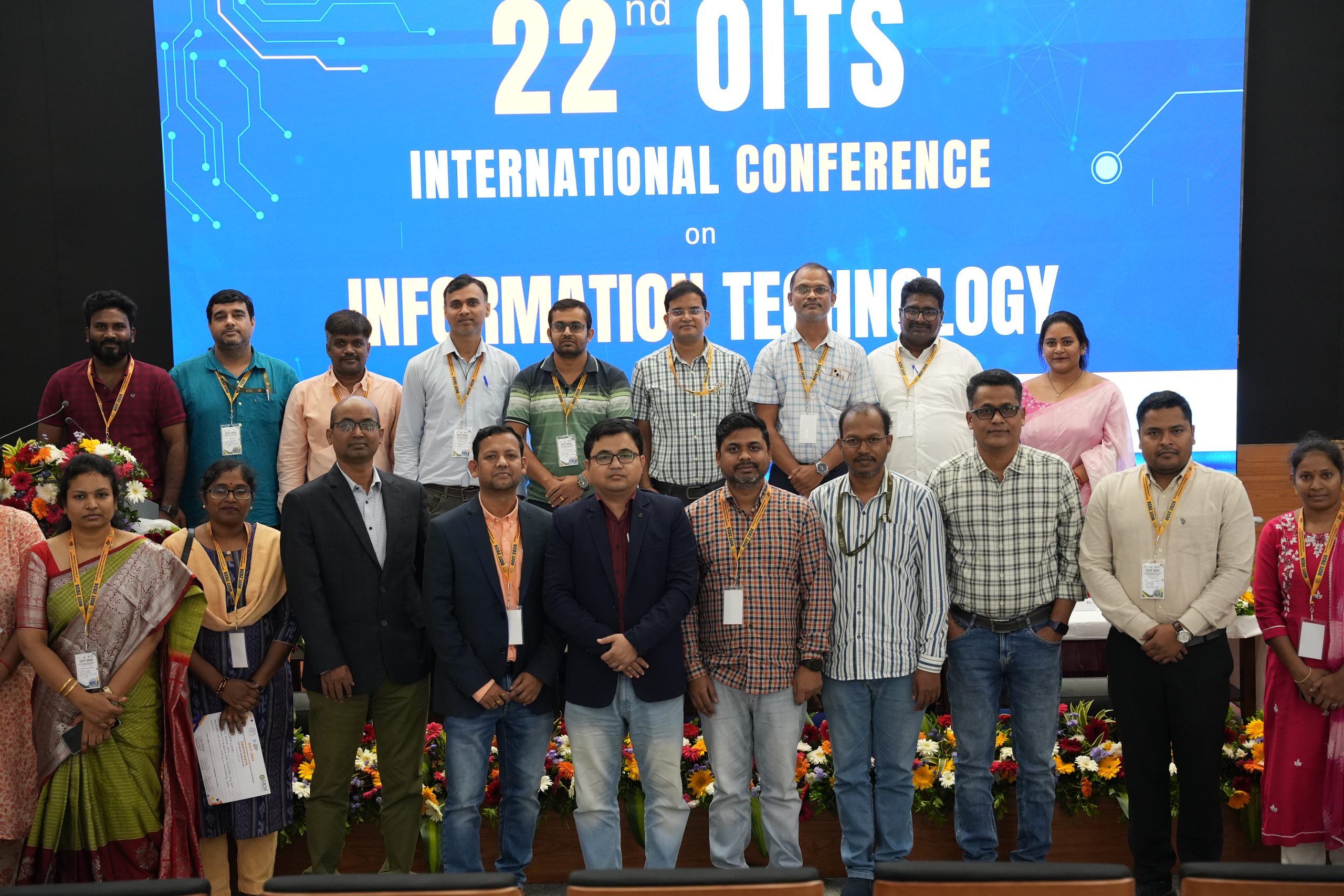
The 22nd OITS International Conference on Information Technology (OCIT-2024) was hosted at SRM University-AP from December 12 to 14, 2024. The conference, which served as a premier platform to discuss advancements in information technology, brought together distinguished academics, researchers, industry professionals, and students from across the globe. OCIT-2024 witnessed a submission of 600 research papers, out of which 136 papers were accepted and registered for presentation after rigorous review.
OCIT 2024 had seven keynote speakers who delivered insightful presentations, offering deep expertise and futuristic perspectives on emerging trends: Prof. Arun Kumar Pujari, HOD of AI & CSE, Adviser & Professor Emeritus Mahindra University, Prof. Banshidhar Majhi, Professor (HAG), Comp Sc.& Engg. NIT Rourkela, Former Director, IIITDM KP, Former VC, VSSUT Burla, Prof. Prabir Kumar Biswas, IIT Kharagpur, Prof. Sharad Sharma (University of North Texas UNT), Dr Kannan Srinathan (IIIT Hyderabad), Prof. Siba Kumar Udgata (University of Hyderabad), Dr Kumar Goutam (Founder & President of QRACE).
Esteemed session chairs guided thought-provoking discussions, elevating the intellectual rigour of the conference. Presenters also shared cutting-edge research, fostering a vibrant exchange of ideas and innovation. The topics explored ranged from artificial intelligence and machine learning to advanced networking and quantum computing. The conference emphasised the importance of collaboration between academia and industry in addressing global challenges and shaping the future.
The conference concluded on a high note, inspiring participants to continue their pursuit of excellence in research and innovation. 12 papers were recognised as the best papers for their exceptional quality and contribution. All 136 accepted papers will be published in IEEE Xplore (Scopus Indexed). Additionally, approximately 15% of the papers will receive extended invitations for submission to peer-reviewed journals.
OCIT-2024 was a remarkable event, leaving a lasting impact on its participants and setting the stage for future technological advancements. The event celebrated the spirit of innovation and research through well-curated presentations.
Continue reading → - Enhancing Teaching Practices with Prof. Conrad December 31, 2024
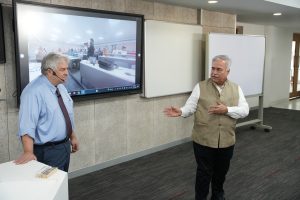 The Teaching Learning Centre successfully conducted a two-day workshop on Project-Based Learning (PBL). The workshop, designed to equip educators with innovative teaching methodologies, brought together 64 faculty members from various disciplines to explore the transformative potential of PBL in higher education.
The Teaching Learning Centre successfully conducted a two-day workshop on Project-Based Learning (PBL). The workshop, designed to equip educators with innovative teaching methodologies, brought together 64 faculty members from various disciplines to explore the transformative potential of PBL in higher education.The workshop was led by Prof. James M. Conrad, a distinguished academic from the University of North Carolina at Charlotte, USA Prof. Conrad, who serves as the Associate Chair of Undergraduate Programs in the Department of Electrical and Computer Engineering, shared his extensive expertise in Computer Engineering, Embedded Systems, and Robotics. His sessions provided a comprehensive understanding of how PBL can foster critical thinking, collaboration, and real-world problem-solving skills among students.
The event began with an introduction to the core principles of PBL, emphasising its alignment with curriculum objectives and its role in creating meaningful, student-centered learning experiences. Participants engaged in interactive sessions that included hands-on activities and group discussions. These activities were designed to help faculty design effective PBL frameworks, manage group dynamics, and assess student progress through formative and summative evaluation methods.
A key highlight of the workshop was the integration of technology and collaborative tools into the PBL process. Faculty members explored various platforms that enhance student engagement and project outcomes, making PBL adaptable to diverse academic disciplines. Practical exercises provided participants with actionable strategies to implement PBL in their classrooms.
By the end of the workshop, participants expressed their enthusiasm and confidence in adopting PBL methodologies. The faculty gained valuable insights into fostering an interactive and innovative learning environment that prepares students for real-world challenges. The workshop was widely appreciated for its practical approach and the relevance of its content to modern educational needs.
Continue reading → - TLC Facilitates Workshop for PhD Scholars December 31, 2024
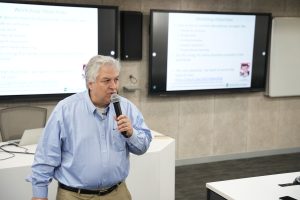 The Teaching Learning Centre conducted a one-day workshop on innovative teaching methods, designed exclusively for PhD Scholars. The event saw the participation of 40 scholars from various departments who sought to enhance their teaching and research capabilities through advanced pedagogical techniques.
The Teaching Learning Centre conducted a one-day workshop on innovative teaching methods, designed exclusively for PhD Scholars. The event saw the participation of 40 scholars from various departments who sought to enhance their teaching and research capabilities through advanced pedagogical techniques.The workshop was led by Prof. James M Conrad, a renowned academic and expert in embedded systems, robotics, and modern teaching methodologies. With his extensive academic experience and leadership roles, including contributions to IEEE, Prof. Conrad brought a global perspective to the session. He guided the participants through strategies to foster student engagement, manage diverse learning needs, and incorporate innovative approaches into classroom and laboratory settings.
The workshop focused on equipping scholars with practical skills to create engaging and inclusive learning environments. Participants explored the use of digital platforms and modern educational technologies to enhance teaching effectiveness and improve student outcomes. Interactive discussions and hands-on activities encouraged scholars to exchange ideas, collaborate, and develop tailored teaching strategies that meet the needs of diverse learners.
By the end of the session, the scholars gained confidence in applying innovative, student-centered methodologies. They felt empowered to contribute significantly to the quality of education and learning outcomes at their respective institutions. This training not only prepared them for their roles as Teaching Assistants (TAs) but also equipped them with the tools to excel as future educators and researchers.
The workshop exemplifies SRM AP’s commitment to fostering excellence in education through innovative training programmes. It highlighted the university’s dedication to preparing scholars for the evolving challenges of academia, ensuring they are equipped to create impactful learning experiences.
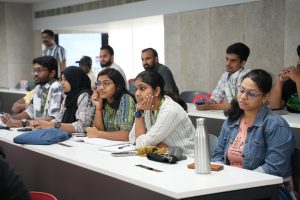
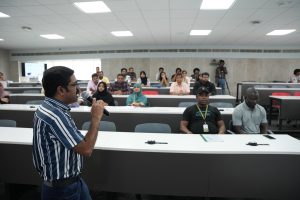
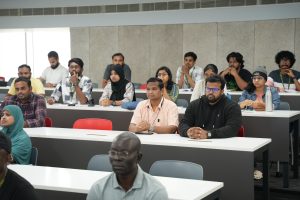
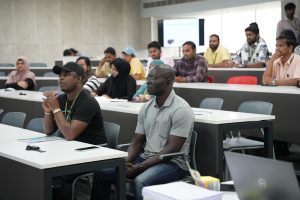
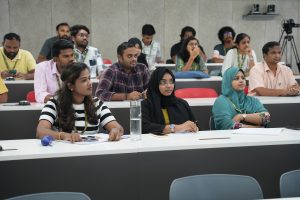
Continue reading → - Christmas Festivities on Campus December 31, 2024
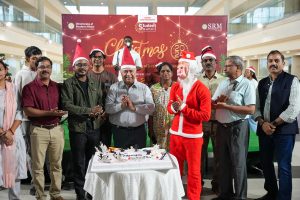 The spirit of Christmas illuminated the campus as students, faculty, and staff gathered to celebrate the festive season with joy and camaraderie. This year’s Christmas celebration, jointly organised by the Directorate of Student Affairs and the Directorate of Human Resource Development, was a spectacular event that showcased the true essence of the unity in diversity.
The spirit of Christmas illuminated the campus as students, faculty, and staff gathered to celebrate the festive season with joy and camaraderie. This year’s Christmas celebration, jointly organised by the Directorate of Student Affairs and the Directorate of Human Resource Development, was a spectacular event that showcased the true essence of the unity in diversity.The celebration witnessed enthusiastic participation from the university’s leadership, including the Vice Chancellor, Registrar, Deans of schools, faculty and staff members. Their presence added warmth and inspiration to the festive occasion.
The event was particularly memorable due to the vibrant involvement of international students, the games, performances, and other activities highlighting the inclusive spirit of the university. Faculty, Students and staff showcased their talents and earned accolades in various competitions, reflecting the dynamic and collaborative atmosphere on campus.
The Vice Chancellor inaugurated the event with an uplifting speech that resonated with the festive cheer, setting the stage for a day filled with joy and celebration. A series of engaging games and activities, meticulously planned by the organising directorates, ensured that every participant had a chance to revel in the festive spirit.
Continue reading → - FDP on Algebra, Analysis, and Number Theory Concluded Successfully December 27, 2024
The Department of Mathematics at SRM University-AP hosted a successful Faculty Development Programme (FDP) on Algebra, Analysis, and Number Theory (AAN–2024) from December 16 to 20, 2024. This initiative aimed to strengthen faculty expertise in foundational mathematical disciplines essential for undergraduate (UG) and postgraduate (PG) education while also promoting effective teaching strategies.
Held online via Zoom, the programme attracted over 500 interested participants from across India, although due to platform capacity, 480 were accommodated. The FDP featured a series of keynote lectures by distinguished speakers focusing on core areas of mathematics.
Prof. V Kannan delivered an extensive session on analysis, discussing key theorems such as the Bolzano-Weierstrass theorem, the Intermediate Value Theorem, and the Heine-Borel theorem. The theoretical insights were complemented by tutorial sessions led by research scholars Mr Priti Prasanna Mondal and Ms Athulya P, who assisted participants in reinforcing their understanding through practical examples.
In the realm of number theory, Prof. Kalyan Chakraborty’s engaging lectures covered topics including plane curves, rational points, and elliptic curves, emphasising their importance and applications. Tutorial sessions by Dr Arkabrata Ghosh and research scholar Ms Leena Mondal supported these discussions with additional insights.
Dr Subha Sandeep Repaka presented comprehensive lectures on algebra, detailing concepts such as the structure of cyclic groups, Lagrange’s theorem, and Sylow’s theorems. These sessions were paired with tutorials that helped participants apply and solidify their knowledge.
Under the leadership of Convenor Dr Sandeep Kumar Verma and Co-Convenors Dr M Radhakrishnan and Dr G Damodar Reddy, the FDP offered valuable insights into advanced mathematical topics and innovative pedagogical approaches. Dr. Verma expressed gratitude for the overwhelming response, stating, “It was a privilege to organise this FDP, bringing together experts and participants to explore the depths of algebra, analysis, and number theory. This programme has served as a platform for knowledge exchange, fostering collaboration and growth in the field.”
The programme marked a significant step towards enhancing mathematics education and research, inspiring participants to incorporate new ideas and methodologies in their academic endeavours.
Continue reading → - Dr Gavaskar Publishes Patent on Generating Prompts December 26, 2024
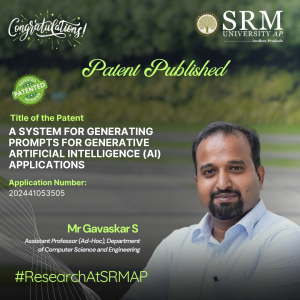
The Department of Computer Science and Engineering is proud to announce that Dr S Gavaskar has published his patent titled A System for Generating Prompts for Generative Artificial Intelligence (AI) Applications (Application Number: 202441091788). This groundbreaking invention will prove to be a significant advancement in the field of AI, enabling the creation of contextually rich and user-specific prompts, thereby enhancing the accuracy and usability of generative AI systems across various domains.
A Brief Abstract:
This research invention relates to Prompt creation process for Generative AI Application by introducing Four way corpus directory(FWCD) comprising the Persona corpus, Localized Application Specific Content Corpus, Annotator corpus, and Stopword corpus to create well-formed, contextual prompts for AI models. It also employs Semantic Based Categorization and Ranking(SBCR) for semantically categorizing and ranking the content present in the Localized Application Specific Content Corpus . The invention improves the interaction between users and Generative AI. It helps deliver more accurate, semantic based outputs from the AI models, improving the overall performance and usability of the system.
Explanation in Layperson’s Terms:
Prompt engineering is the process of using natural language to create instructions that generative artificial intelligence (AI) models can understand and interpret.In this research we have create a system for prompt creation by which the users can create their own prompt with the combination of their persona details,stopword,annotator content from their localized corpus directory before applying to the LLM models such as ChatGPT,Copilot etc.
Practical Implementation / Social Implications:
- This concept can be implemented in Education Institutions to generate tailored prompts for learning materials and academic projects.Enterprises can use localized content to generate role-specific prompts. and marketing organizations can use to create prompts aligned with specific campaigns or audience demographics.It can also be used in organizations where multiple persons with different roles and responsibilities are there and they have their own localized content for which a prompt has to be created for an Generative AI Application.
This invention also lets people from different skill levels access the system and create their own prompt for their applications.
Future Research Plans:
Future research focus is on creating LLM and AI related applications to the field related to education.cyber security,Legal and Enterprises.
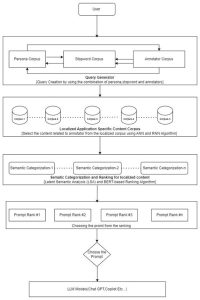
Continue reading → - This concept can be implemented in Education Institutions to generate tailored prompts for learning materials and academic projects.Enterprises can use localized content to generate role-specific prompts. and marketing organizations can use to create prompts aligned with specific campaigns or audience demographics.It can also be used in organizations where multiple persons with different roles and responsibilities are there and they have their own localized content for which a prompt has to be created for an Generative AI Application.


